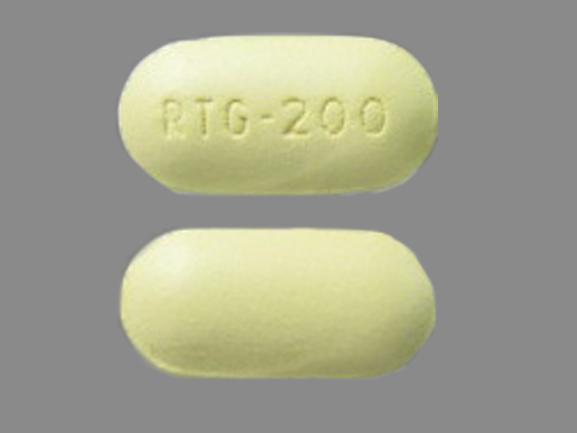Ezogabine Side Effects
Medically reviewed by Drugs.com. Last updated on Mar 15, 2025.
Applies to ezogabine: oral tablet.
Important warnings
This medicine can cause some serious health issues
- This drug can cause certain eye problems.
These eye problems may lead to lasting loss of eyesight.
This drug is only for use if other drugs have not worked.
Eye exams will be done before starting this drug and during treatment to watch for these eye problems.
Call your doctor right away if you have any change in eyesight.
Talk with your doctor to be sure that the benefits of this drug are more than the risks.
Serious side effects of ezogabine
WARNING/CAUTION: Even though it may be rare, some people may have very bad and sometimes deadly side effects when taking a drug. Tell your doctor or get medical help right away if you have any of the following signs or symptoms that may be related to a very bad side effect:
- Signs of an allergic reaction, like rash; hives; itching; red, swollen, blistered, or peeling skin with or without fever; wheezing; tightness in the chest or throat; trouble breathing, swallowing, or talking; unusual hoarseness; or swelling of the mouth, face, lips, tongue, or throat.
- If seizures are worse or not the same after starting this drug.
- Trouble speaking.
- Change in balance.
- Trouble moving around.
- Not able to focus.
- Memory problems or loss.
- Feeling confused.
- Hallucinations (seeing or hearing things that are not there).
- A burning, numbness, or tingling feeling that is not normal.
- Feeling very tired or weak.
- Not able to pass urine or change in how much urine is passed.
- Pain when passing urine.
- Passing urine in a weak stream or drips.
- Very bad dizziness or passing out.
- A heartbeat that does not feel normal.
- Patients who take this drug may be at a greater risk of having thoughts or actions of suicide. The risk may be greater in people who have had these thoughts or actions in the past. Call the doctor right away if signs like low mood (depression), nervousness, restlessness, grouchiness, panic attacks, or changes in mood or actions are new or worse. Call the doctor right away if any thoughts or actions of suicide occur.
Other side effects of ezogabine
All drugs may cause side effects. However, many people have no side effects or only have minor side effects. Call your doctor or get medical help if any of these side effects or any other side effects bother you or do not go away:
- Feeling sleepy.
- Dizziness.
- Feeling tired or weak.
- Shakiness.
- Anxiety.
- Upset stomach.
- Constipation.
- Feeling like you are spinning.
These are not all of the side effects that may occur. If you have questions about side effects, call your doctor. Call your doctor for medical advice about side effects.
You may report side effects to the FDA at 1-800-332-1088. You may also report side effects at https://www.fda.gov/medwatch.
See also:
For healthcare professionals
Applies to ezogabine: oral tablet.
Ocular adverse events
- Very common (10% or more): Retinal pigmentary abnormalities (up to 30%)
- Common (1% to 10%): Diplopia, blurred vision
- Frequency not reported: Decreased visual acuity, nystagmus
- Postmarketing reports: Acquired vitelliform lesions[Ref]
Dermatologic
- Very common (10% or more): Discoloration of the skin, palate, scleral, nail, conjunctiva, lip, and/or mucous membrane (up to 40%)
- Uncommon (0.1% to 1%): Hyperhidrosis, skin rash
- Frequency not reported: Alopecia[Ref]
Psychiatric
- Common (1% to 10%): Confusional state, psychotic disorders, hallucinations, anxiety, disorientation
- Frequency not reported: Euphoric mood[Ref]
Nervous system
- Very common (10% or more): Dizziness (up to 23%), somnolence (up to 22%)
- Common (1% to 10%): Memory impairment, tremor, vertigo, abnormal coordination, disturbance in attention, gait disturbance, aphasia, dysarthria, balance disorder, paresthesia, amnesia, myoclonus
- Frequency not reported: Syncope, coma, encephalopathy[Ref]
Genitourinary
Gastrointestinal
- Common (1% to 10%): Nausea, constipation, dyspepsia, dry mouth
- Uncommon (0.1% to 1%): Dysphasia[Ref]
Hematologic
- Frequency not reported: Leukopenia, neutropenia, thrombocytopenia[Ref]
Hepatic
- Common (1% to 10%): Increased liver enzymes (less than 2%)
- Frequency not reported: Nephrolithiasis[Ref]
Immunologic
Metabolic
- Common (1% to 10%): Increased weight, increased appetite[Ref]
Musculoskeletal
- Uncommon (0.1% to 1%): Hypokinesia
- Frequency not reported: Muscle spasms[Ref]
Other
- Very common (10% or more): Fatigue (up to 15%)
- Common (1% to 10%): Asthenia, malaise, peripheral edema[Ref]
Renal
- Uncommon (0.1% to 1%): Nephrolithiasis
- Frequency not reported: Renal colic[Ref]
Respiratory
References
1. (2011) "Product Information. Potiga (ezogabine)." GlaxoSmithKline
More about ezogabine
- Check interactions
- Compare alternatives
- Dosage information
- During pregnancy
- Drug class: neuronal potassium channel openers
- Breastfeeding
Patient resources
Other brands
Professional resources
Other brands
Related treatment guides
Further information
Ezogabine side effects can vary depending on the individual. Always consult your healthcare provider to ensure the information displayed on this page applies to your personal circumstances.
Note: Medication side effects may be underreported. If you are experiencing side effects that are not listed, submit a report to the FDA by following this guide.

